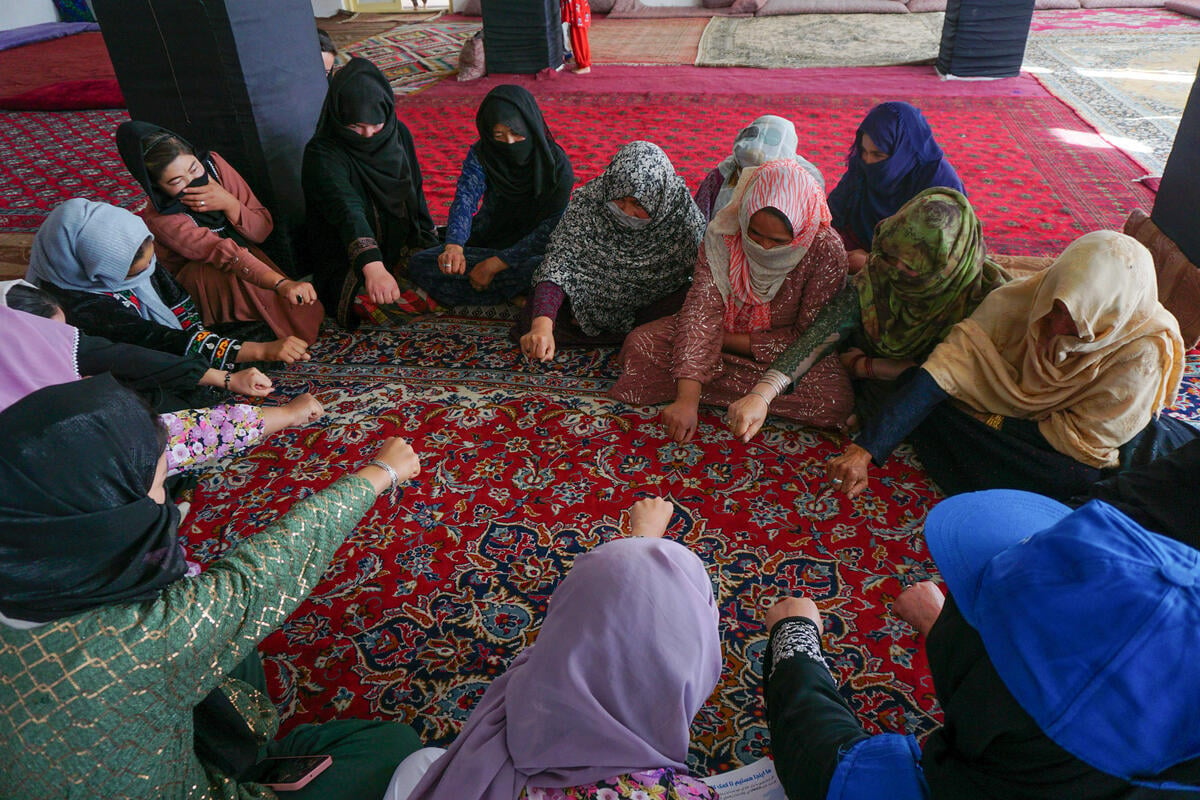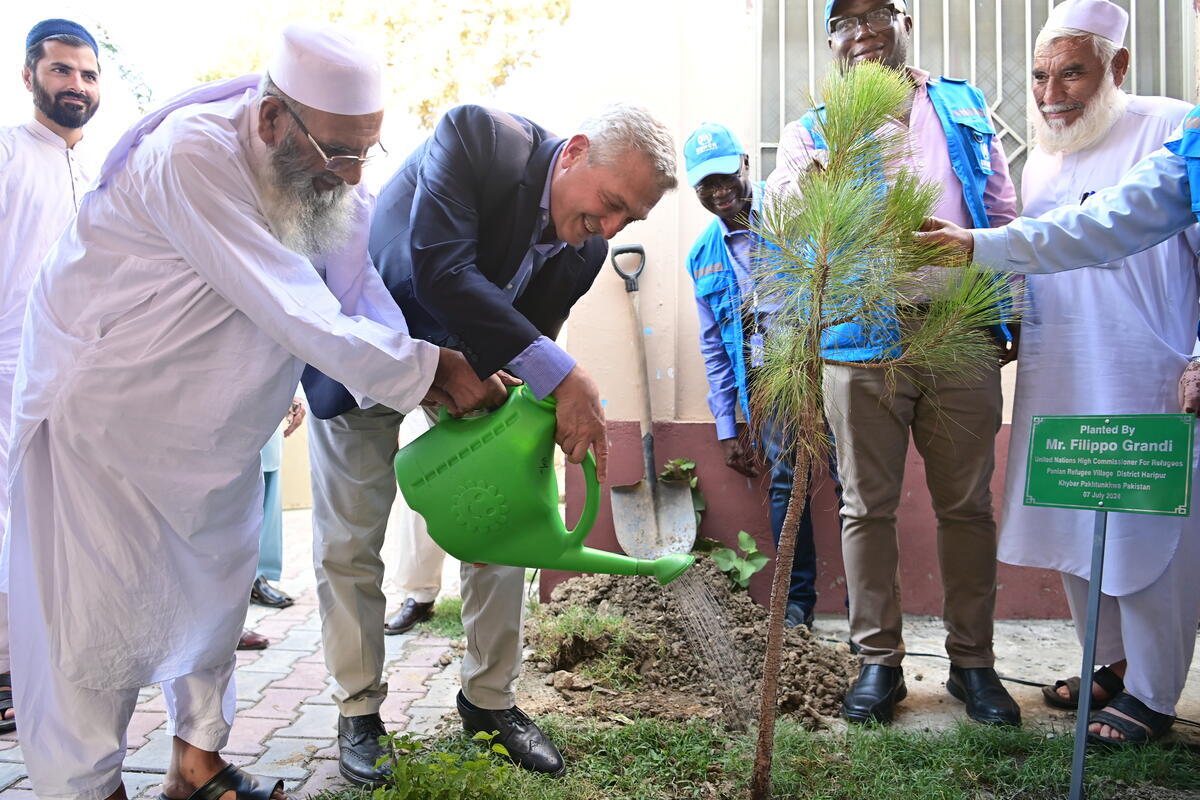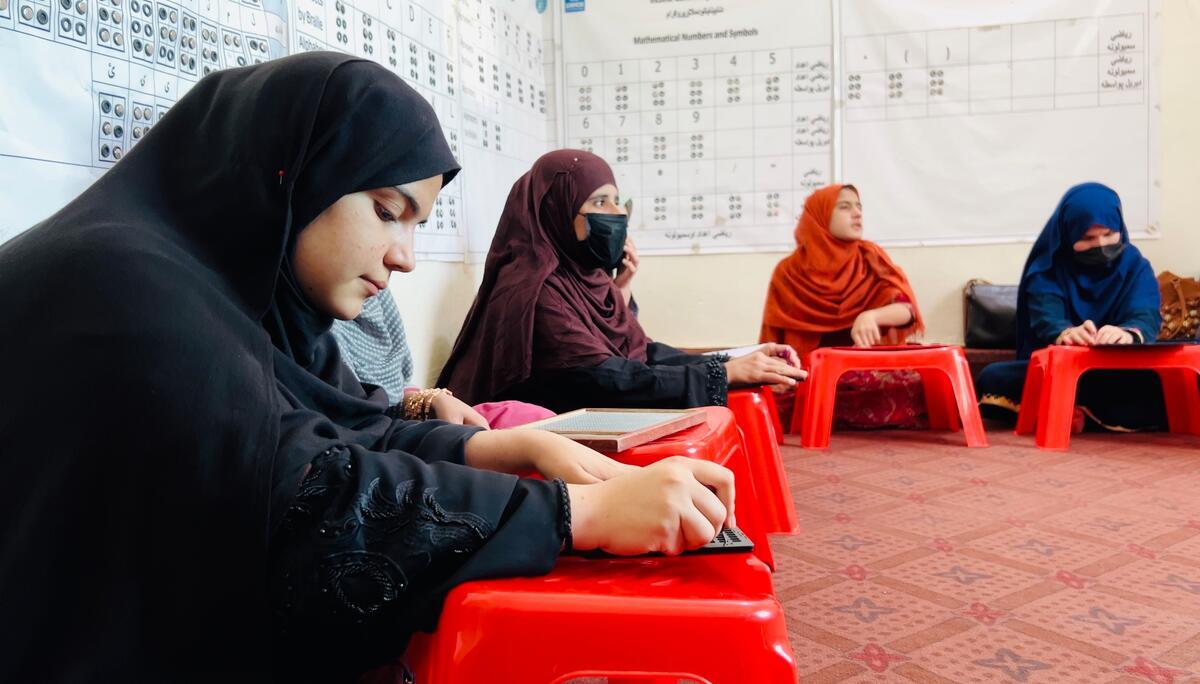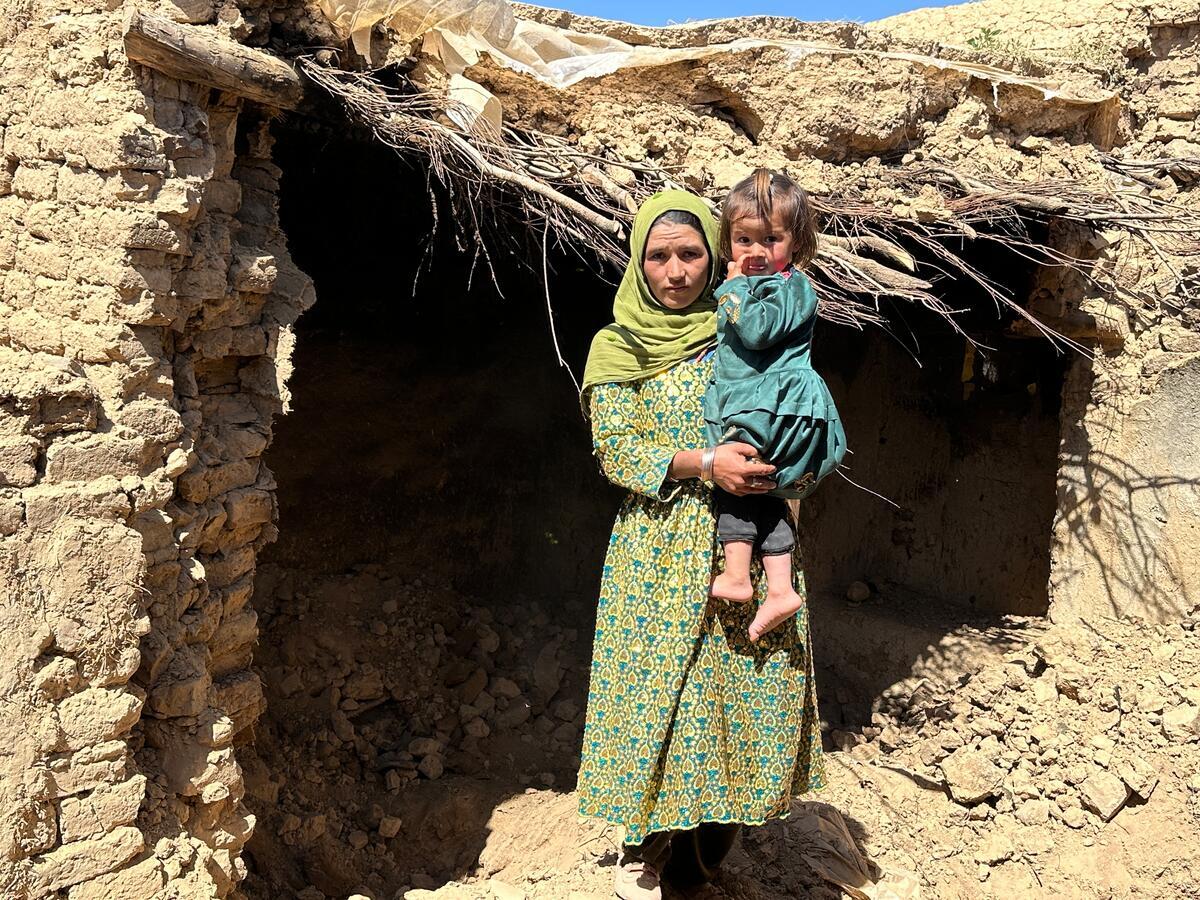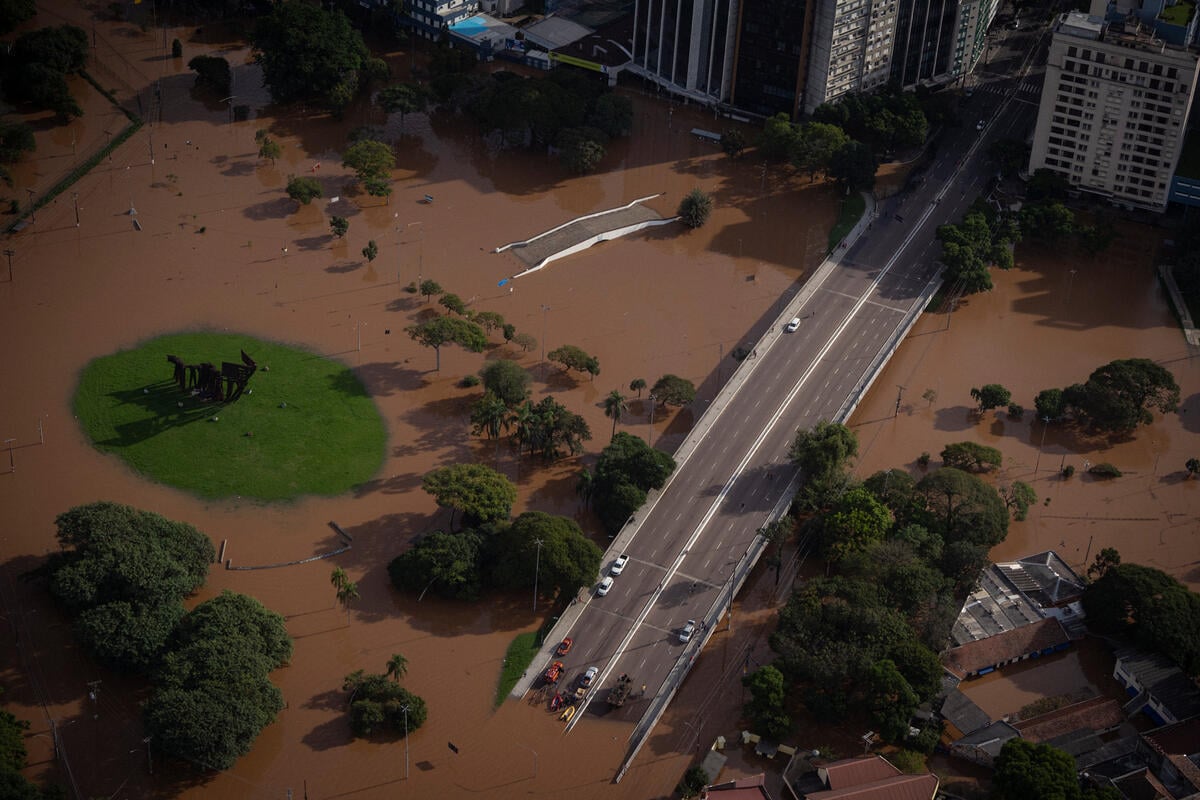Key repatriation agreement signed between Iran, Afghanistan and UNHCR
Key repatriation agreement signed between Iran, Afghanistan and UNHCR

The UN High Commissioner for Refugees, the Afghan Interim Authority's Minister for Repatriation and the Director of the Islamic Republic of Iran's Bureau for Aliens and Foreign Immigration Affairs at the April 3 signing.
Geneva, April 3 (UNHCR) - A key refugee repatriation agreement was signed between the governments of Iran, Afghanistan and UNHCR Wednesday and was hailed by all three signatories as a highly significant marker in the process of helping Afghanistan to get back on its feet.
The tripartite agreement, signed in Geneva, sets the main legal and operational framework for the voluntary return of Afghan refugees in Iran.
At the signing ceremony, the UN High Commissioner for Refugees Ruud Lubbers, said, "Now we really start. It's a very special experience. We're convinced there will be massive repatriation in an orderly way."
Earlier, in a press statement, UNHCR had described the agreement as a solid, detailed document that sets the necessary parameters for an orderly return of Afghans. "Most important of all," Lubbers said, "it stresses that repatriation should be voluntary."
The Minister for Repatriation in the Afghan Interim Authority, Enayatullah Nazeri, described the occasion as "a very important and precious day in Afghanistan's history." He thanked Iran for hosting Afghan refugees for more than two decades and said, "This hospitality will remain in the memory of every Afghan."
Nazeri emphasised that the refugees should return on their own free will, and requested both Iran and Pakistan to refrain from deporting Afghans.
The organized repatriation from Iran is set to start next week. A total of 11 voluntary repatriation centres are being established across the country. UNHCR will bear transportation costs up to the two main border crossings into Afghanistan. Each returnee will also be given $10 and an assistance package including food, and basic tools.
Under the agreement, the Afghan authorities have agreed not to discriminate against returnees and to facilitate the recovery of lost land or property. They will also recognise the legal status of refugees and allow spouses and children of Afghan refugees who are not themselves Afghan citizens to legally enter the country with their families.
UNHCR estimates there are more than 1.5 million Afghan refugees in Iran and 2 million in Pakistan, with several hundred thousand more scattered across the world after 23 years of civil war and natural catastrophes.
Assisted repatriation from Pakistan, which began on 1 March, hit the 160,000 mark late Wednesday, and both Lubbers and the UN Secretary-General's Special Representative in Afghanistan, Lakhdar Brahimi, said that if the repatriation continued at such a rate, the numbers returning this year would be far higher than expected, possibly rising to well over a million.


